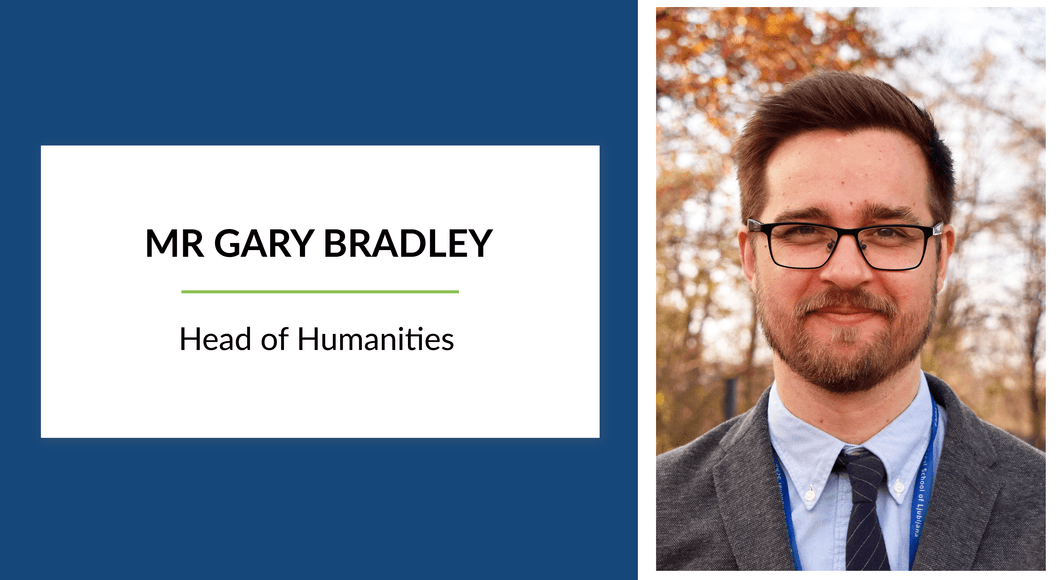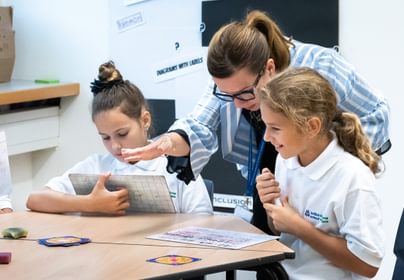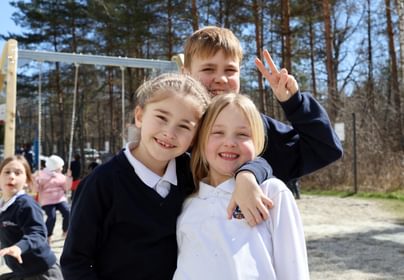As we wrap up our Humanities theme in Block 2, we’d like you to dig a little deeper in getting to know our brilliant Head of Humanities, Mr Gary Bradley, in this week’s Teacher Feature.
Originally from Scotland, Mr Bradley is no stranger to the world of international education, having attended an international school himself back in the day, accustomed to the friendly and welcoming environment that such schools have to offer. His calm energy, organisation and care for his students is evident in all lessons, as he takes his classes on an exciting journey through the ever-changing field of Humanities. An avid news reader, Mr Bradley enjoys keeping up to date with current world affairs and often incorporates these into his lessons to make learning all the more relevant and interesting.
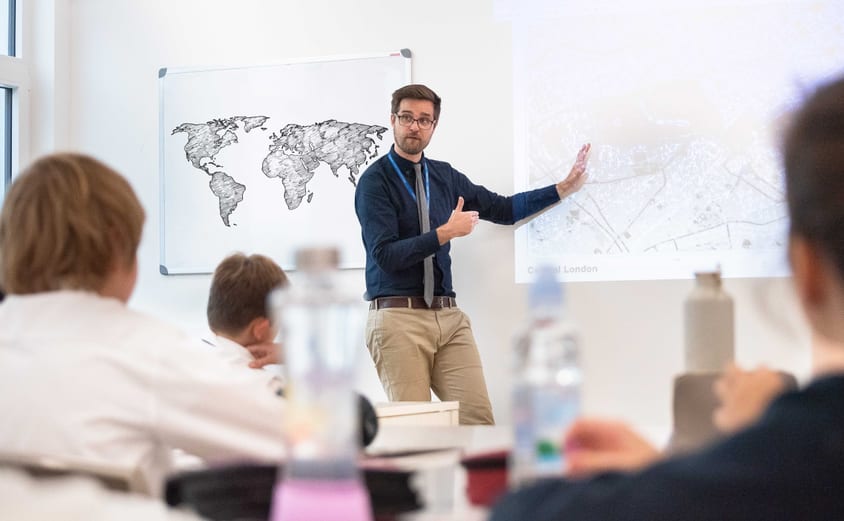
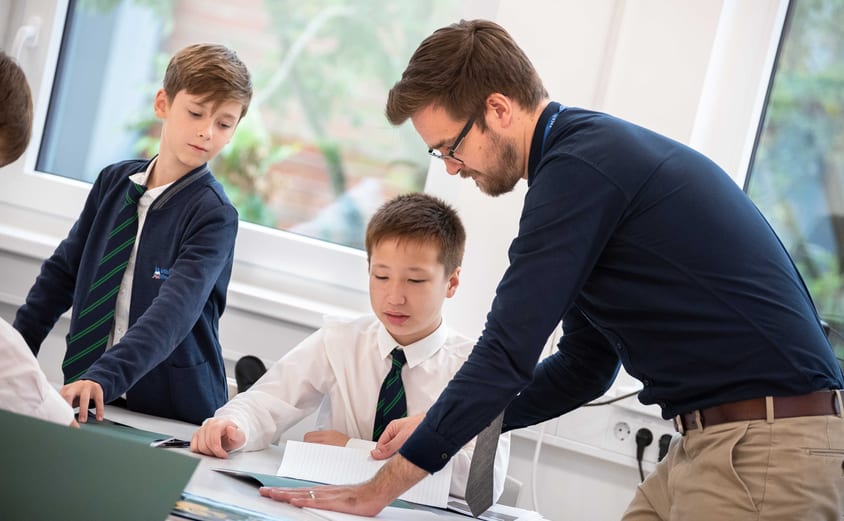
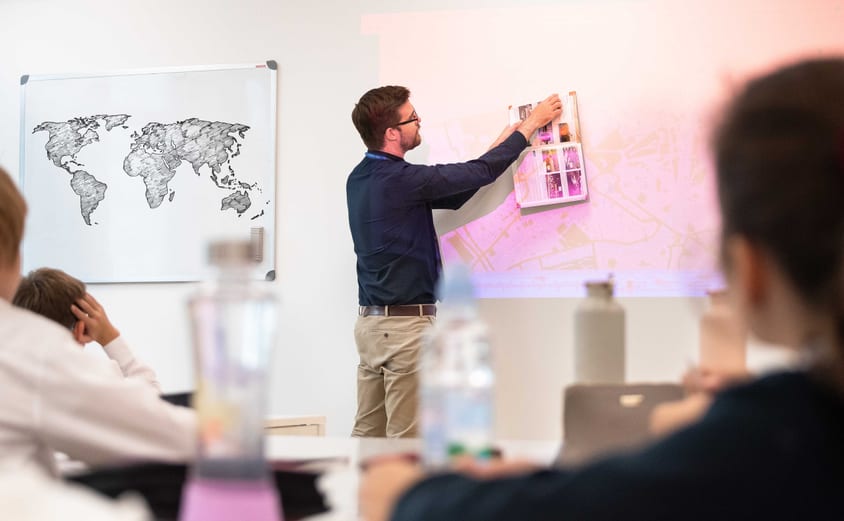
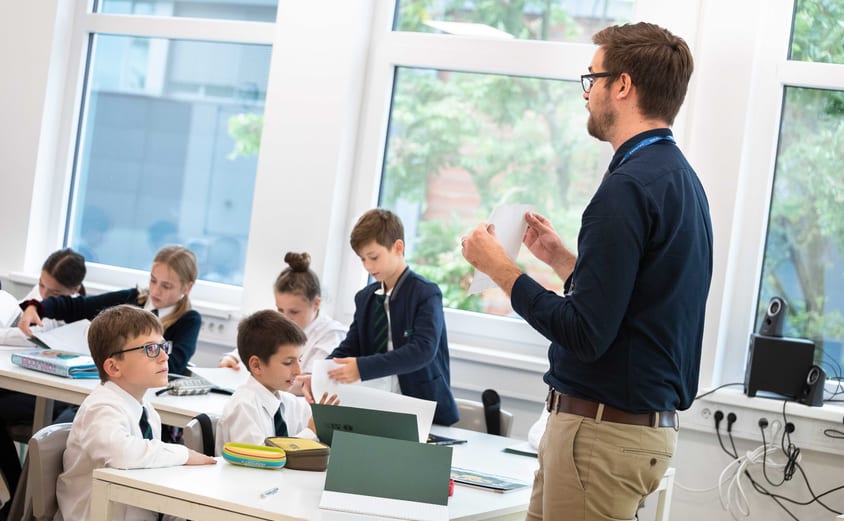
How did your journey as a teacher begin?
I had teaching as a future career in my mind since I was at Secondary school but wanted to keep my options open when I went to university. After finishing my BSc and MA in Archaeology I realised how much I enjoyed both learning and teaching, especially the interaction between people and places in the past. I decided to undertake a PGCE in Secondary Geography as it covered so many of my broader interests. Since I had attended an international school as a teenager it felt natural to work abroad so I was delighted to accept a job offer in Malaysia where I worked for five years as a Geography Teacher and Head of Department before moving over here to Slovenia last year.
Why did you decide to specialise in Humanities?
I’ve always been passionate about the Humanities subjects, particularly prehistory, history, geography and archaeology. I have a slightobsession with time and find it fascinating to think about all the people that have lived on Earth and how much the planet has changed since its formation. I think the Humanities are incredibly valuable in understanding human behaviour and our relationship with the natural environment. I particularly love geography because it has the potential to shape how we think, act and live, in order to create a more sustainable world for future generations.
What makes BISL such a unique place to work?
It’s definitely the smallest school I’ve worked in and that has many wonderful benefits. I feel like I get to know my students much better and much more quickly than in larger schools and it gives me the opportunity to really tailor my teaching towards their needs. It’s also the most “international” of the international schools I’ve worked at and it's invaluable being able to invite students to share their experiences and knowledge of different parts of the world. Lastly, I work with some amazing teachers and it’s a huge bonus to be surrounded by caring and dedicated professionals who share my love for teaching and learning.
How would you describe a typical day at BISL?
A typical day for me involves walking to school and dropping my son off at Early Years where he promptly abandons me to read a book or to paint. After that I head up to Room 314 to greet Mr Rogers and 11A who I co-tutor, check emails and get things ready for the day. I teach geography in all Key Stages in Secondary so I might be teaching about the basics of geography with Year 7 students or helping Year 11 develop their case study knowledge for their IGCSE exams. At A Level, I love having in-depth conversations about various topics, such as the role of pluvial and interpluvial periods on the formation of arid landforms or the factors responsible for inequalities in world trade. Despite the weekly timetable, every day feels different and it’s brilliant to see the students enjoy learning about the world around them.
Why is the experience of an international education important for a student?
Our world is becoming increasingly globalised and the skills and knowledge that international students develop are invaluable in helping them navigate and be successful in these uncertain times. We often speak about the BISL values of Respect, Challenge, Empathy and Excellence and how fortunate we all are to work and learn with people from different backgrounds and cultures. Especially as a Humanities teacher it is brilliant to be able to call upon the experiences of students in lessons to understand a topic, such as Development. We have first-hand knowledge of life in many different countries and so can much more easily compare the differences in development between these places. Lastly, we have the added bonus of free translators! What teacher wouldn’t be amazed to have students who can, for example, translate the Japanese spoken by terrified onlookers as Mt Ontake erupted in 2014? It certainly makes the world feel like a smaller, more interconnected place.

More from our Teacher Feature series
- 28.10.2020 - Ms Laura Harris
- 21.10.2020 - Ms Katarina Miklavec
- 6.10.2020 - Mr Jason Batson

